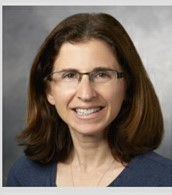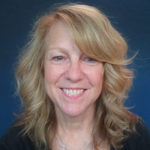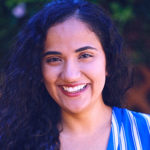Jennifer Kizner
Candidate Statement: My name is Jennifer Kizner, and I am running for the CSHA chair-elect position. Currently I am the clinical specialist in the Multidisciplinary Head and Neck Oncology Clinic at Stanford Healthcare.
I was a clinical leader in Stanford’s Rehabilitation department for 10 years, managing a staff of 25 employees working in Critical Care and Neurology units. I assisted in bringing Flexible Endoscopic Evaluation of Swallowing (FEES) into Stanford Healthcare and chaired a committee to revamp the oral care practices as part of a Stanford’s Clinical Fellowship Program. I co-chair an annual FEES course which includes using the Stanford Simulation Lab to allow clinicians to practice a new skill in a safe environment. I was the clinical education coordinator at Stanford and coordinated all rehabilitation interns for the year.
I have participated in multiple CSHA committees. I am a member of the CSHA education counsel, which assisted in organizing talks around the state on a variety of topics to meet the needs of all practice providers. I am a peer reviewer for CSHA convention proposals in the areas of medical speech pathology. I am the current CSHA State Medicare policy representative (StAMP) and meet monthly with all state StAMPs to discuss current Medicare issues that affect SLPs. I am a member of the CSHA Governance Committee as the medical representative currently focusing on removing barriers to perform FEES. I have learned so much about issues in other realms of our practice and enjoy advocating for SLPs to be able to perform our roles best to help our patients, clients and students. I am the current CSHA District 4 Director and member of the Board of Directors and have really enjoyed learning more about CSHA’s current goals to improve our representation of the diverse SLPs working in all practice areas.
I have also participated in two ASHA Convention planning committees in the areas of dysphagia and practice policy.
I have the competencies to be a leader within CSHA because I am passionate about our field and want to ensure that our members feel supported in their practice areas. I have had many leadership roles, taken multiple leadership courses, and had experience making changes within my facility to better meet the needs of clinicians. I believe those skills will translate to the board chair role. The two priority impacts for CSHA’s strategic plan include fiscal sustainability and diversity, inclusion and culture. I have the skills to assist with both priorities from my prior leadership roles.
We need to increase our membership to have a larger impact on the licensed speech pathologists and audiologists in our state. I have already advocated to my SLP colleagues on the importance of becoming a CSHA member now. It’s surprising to hear that only 3,000 out of 30,000 California licensed SLPs and audiologists are CSHA members. We can improve this number by showing the value of having a state association advocating for you and your clinical needs to better perform your job duties.



